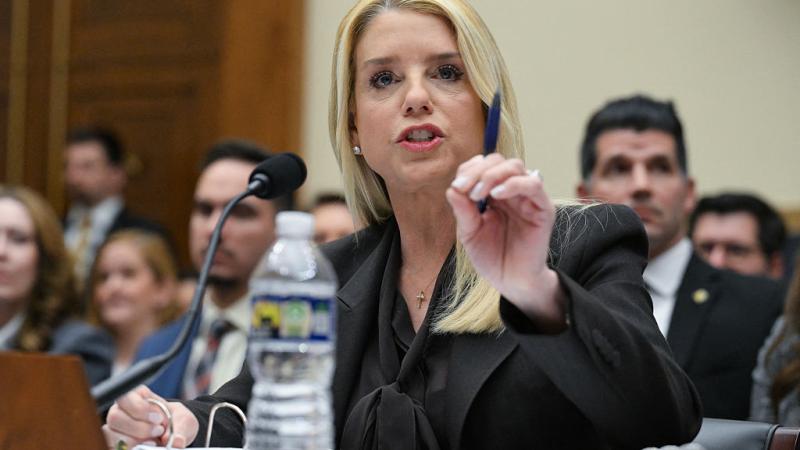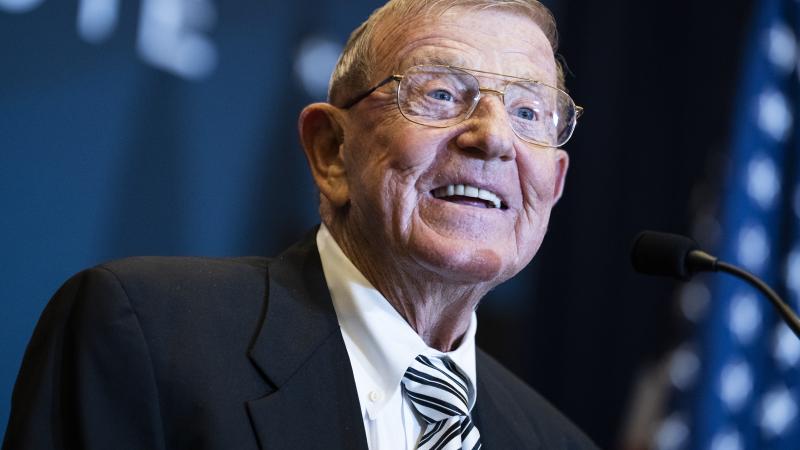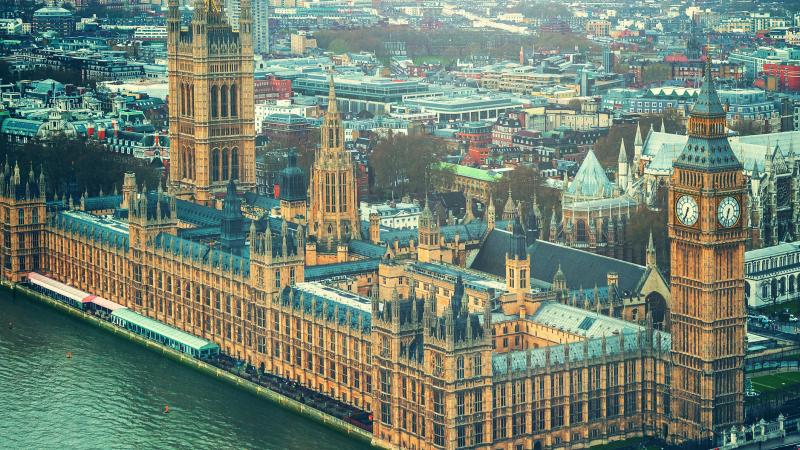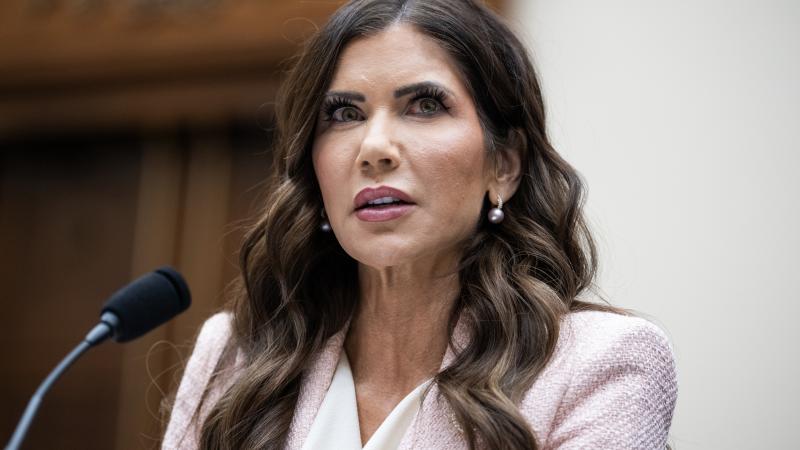Professor fired for challenging science behind COVID mandates can sue university, judge rules
Two courts in two months reach opposite conclusions on what qualifies as protected faculty speech, as mask and vaccine mandates loom again over higher education.
A tenured professor fired less than a month after seeking the scientific evidence behind her public university's COVID-19 policies and challenging the legality of its vaccine mandate will get to continue her First Amendment retaliation lawsuit against the University of Maine System.
Patricia Griffin has sufficiently alleged "the subject matter of her speech pertained to a matter of great public concern and was outside the scope of her duties as a professor of marketing" at the University of Southern Maine, U.S. District Judge Jon Levy ruled last month, clearing the way for trial on that issue while dismissing Griffin's other claims.
Levy, nominated to the bench by President Barack Obama, reached the opposite conclusion about what qualifies as protected faculty speech from the 4th U.S. Circuit Court of Appeals, which upheld the dismissal of a similar lawsuit against North Carolina State University in July. Levy answers to the 1st Circuit, which has jurisdiction over Maine, Massachusetts and New Hampshire.
The Foundation for Individual Rights and Expression warned that the 4th Circuit, with jurisdiction over Maryland, North Carolina, South Carolina, Virginia, and West Virginia, had blessed the weaponization of "collegiality" and encouraged universities to "punish faculty who are critical of university governance, amplifying an already-pervasive problem."
The continuation of Griffin's case comes at a crucial time for faculty and students who may have similar objections to renewed or proposed COVID mandates emerging on their campuses this summer and fall, as federal officials and public health pundits sound the alarm about a small uptick in COVID-related hospitalizations and promote the forthcoming update to vaccines.
"It's like a knee-jerk reaction … they can't let go of the fear and the failed pandemic plans" from the past three years, Stanford University epidemiologist Jay Bhattacharya told the "Just the News, No Noise" television show Wednesday.
"The panic has absolutely no real public policy basis" but will end up "harming your children and working class people again and again," Bhattacharya said, dismissing President Joe Biden as "the pharmaceutical company's best spokesman."
Like a student who alleged her university evicted her from campus housing for simply telling others she got a religious exemption from its vaccine mandate — eventually reaching a settlement — Griffin claimed she was punished purely for her speech, not violating the university's mask and vaccine mandates.
The professor received tenure in June 2021, just two months before telling Dean Joanne Williams she had found "no evidence to support" the idea that its new policies were the "optimal method for stopping the transmission of the virus," according to court records. Griffin also claimed President Glenn Cummings, a named defendant, violated the mask policy at a luncheon earlier that day.
Griffin shared research that informed her conclusions and asked Williams for any research in favor of USM policies, but also warned that asking for her vaccination status violated the Health Insurance Portability and Accountability Act.
"My expectation is the University of Southern Maine will appreciate a faculty member who embraces critical thinking," she wrote in the email to Williams, noting she was teaching one class in person starting the following Monday.
After reiterating her claims and requests for countervailing research at a Zoom meeting with Williams the next day, Griffin said her three courses "immediately" disappeared from the fall class list, two of them online.
At a "pre-disciplinary conference" two days later, administrators demanded Griffin resign and accept a part-time position as a condition of teaching online courses. They refused to give her evidence supporting the mandates, she said.
In a Sept. 8 notice of suspension and planned termination, President Cummings falsely claimed Griffin had "refused to comply" with COVID policies in her original email to Dean Williams, Griffin alleged. When she learned Cummings would be at her grievance hearing despite her previous "hostile work environment" complaint against the president, Griffin decided to skip the hearing, losing her job Sept. 22.
Cummings has qualified immunity as a public official from personal liability, Judge Levy ruled. Griffin has not shown "her right was clearly established" by a 1979 Supreme Court ruling in favor of a teacher who was fired for publicly accusing her district of racially discriminatory policies, Levy said, citing the "private nature of Griffin's speech" as one of many differences.
It would require a "fact-intensive inquiry" to determine whether Griffin's speech "was made within the scope of [her] employment, or whether [she] spoke as a private citizen," under a more recent Supreme Court precedent on the speech rights of public employees, the ruling concluded.
That's precisely the claim that will move forward toward trial, Levy wrote. The fact that Griffin's speech is "related" to her employment does not itself determine whether "she was speaking pursuant to her official duties as a public employee," which is determined by seven factors under 1st Circuit precedent.
Because Levy has to "draw all reasonable inferences" in Griffin's favor at this stage, the judge said she might have simply communicated her "conclusions" about the efficacy of COVID mandates in college settings, rather than privately hinting to her employer "she might not comply" with its specific mandates.
It is "more than merely possible" that legal discovery, which is "another matter for another day," will verify these inferences in Griffin's favor, Levy concluded. She can seek reinstatement but not damages.
"UMS will continue to defend its actions and looks forward to the court reaching a final resolution in this case," University of Maine System spokesperson Tory Ryden told Just the News.
George Washington University law professor Jonathan Turley praised Levy's ruling as "balanced and fair," contrasting it with the 4th Circuit ruling in favor of NCSU. The Maine Legislature "should take note of this case and the need to reinforce free speech protections in the system," he wrote in a blog post.
NCSU education professor Stephen Porter, who is also tenured, had alleged he was kicked out of his program in the department for criticizing diversity, equity and inclusion practices, "leaving his future at NCSU in jeopardy."
Porter had questioned the merit of a proposed diversity question in student course evaluations, mocked a faculty search committee chair for recruiting a black candidate who had been sanctioned for financial misconduct, and called the Association for the Study of Higher Education a "woke joke" in a blog post.
A 2-1 split panel of the 4th Circuit saw otherwise, ruling that Porter's first two statements were not made on "a matter of public concern" protected by the First Amendment, but as an employee who was legitimately disciplined for lack of "collegiality," unrelated to his teaching or scholarship.
The majority also said Porter hasn't shown the blog post played a "but-for" role in his adverse employment action 10 months later.
"The issues at stake make this case ripe for SCOTUS review, lest the Circuit ruling create a roadmap for censorious administrators everywhere," advocacy group Protect the 1st said in an X post Tuesday.
Protect the 1st fights legislative and administrative provisions that it says violate First Amendment rights. It is advised by former House Judiciary Committee Chair Bob Goodlatte (R-Va.) and Internet Subcommittee Chair Rick Boucher (D-Va.) and led by former clerks to Supreme Court justices Clarence Thomas and the late Antonin Scalia.
The Facts Inside Our Reporter's Notebook
Links
- Judge Jon Levy ruled
- upheld the dismissal of a similar lawsuit
- Foundation for Individual Rights and Expression
- renewed or proposed COVID mandates
- "the pharmaceutical company's best spokesman."
- evicted her from campus housing for simply telling others
- eventually reaching a settlement
- 1979 Supreme Court ruling
- Supreme Court precedent on the speech rights
- blog post
- sanctioned for financial misconduct
- 2-1 split panel of the 4th Circuit
















